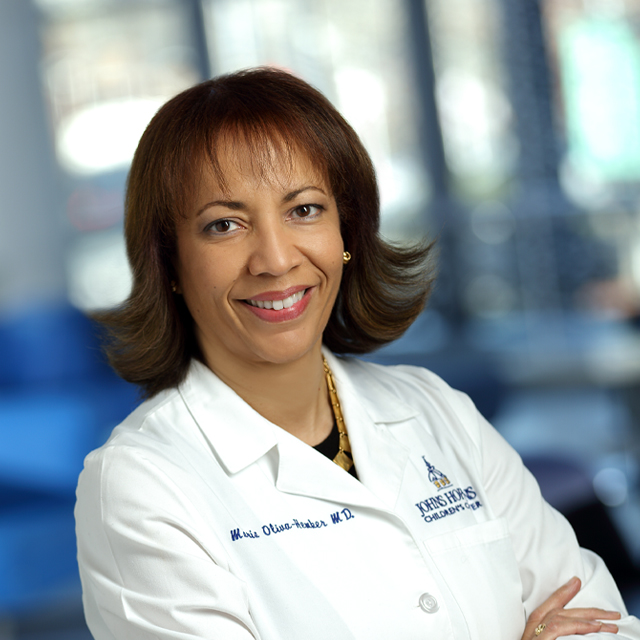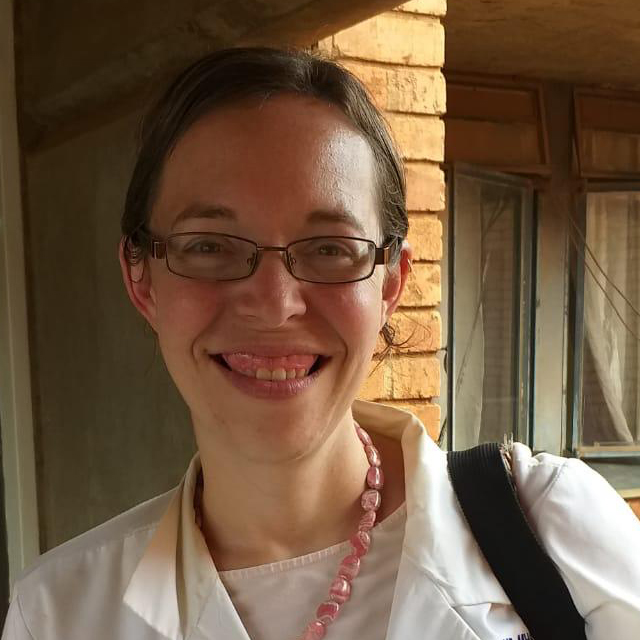One day at church in Zambia, Deanna Saylor ’11 overheard a young woman telling a friend that her leg problems had returned. Saylor, associate professor of neurology at the Johns Hopkins University School of Medicine, apologized for eavesdropping, and urged the woman to make a neurology appointment with her.
“She had been to 10 doctors over 10 years, and nothing had helped,” says Saylor, who lives and works in Zambia with her husband and their two young children. “We did a workup, and I diagnosed her with multiple sclerosis. She’s now walking without a cane, and she is empowered to manage her care.”
The intervention was particularly meaningful for Saylor, whose mother was diagnosed with multiple sclerosis when Saylor was in second grade.
Saylor witnessed the best and worst of her mother’s neurologists, and decided she would be one of the good ones. Her ambition came into sharper focus during a six-week internal medicine rotation at a rural Kenyan hospital in 2010. “I was in the small, remote village, seeing need on a scale I had never seen before,” says Saylor, who also holds a master’s degree in health science from the Bloomberg School of Public Health (2009). “By the end, I felt like I could make a difference in a setting like that in a way that I couldn’t in a setting with more ample resources.”
After a research fellowship in Kenya, Saylor moved to Zambia in 2018 to develop a neurology program for Johns Hopkins at the University Teaching Hospital (UTH), a 1,655-bed hospital in the capital city of Lusaka.
Before she arrived, the entire East Africa country of more than 18 million people had just five neurologists, all expatriates trained in other countries and all based at UTH. There was no inpatient neurology care available, no neurology training program and no Zambian neurologists.
Now, five adult and two pediatric neurologists have graduated from Saylor’s program, she says, with another five in training. Her weekly education sessions reach hundreds of providers in multiple countries across sub-Saharan Africa. “Training in the country where you’re going to practice means training in the most common disorders you’re likely to see, and within the resource constraints of your setting,” notes Saylor, recipient of the 2022 Global Achievement Award from the Johns Hopkins University School of Medicine Alumni Association.
Next for Saylor is helping Zambia-trained neurologists start practices in smaller hospitals across the country, giving more residents access to the high-quality neurological care she wanted for her mother.


